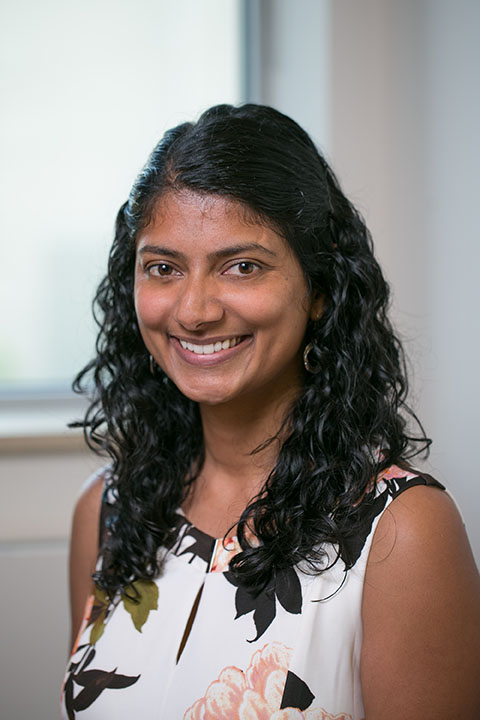Dr. Kavita Algu
Role at the CentreHome-care doctor Year started at the Centre2015
| It’s a curious discipline, palliative care. Some medical specializations seem to attract certain character types. But palliative care seems to be an exception to this general rule. You never quite know what you’re going to get with a palliative care physician, a garrulous extrovert or, as with Kavita Algu, someone who seems unassuming, deferential, perhaps even a little shy. What attracted her to palliative care, I wonder out loud. Her answer is counter-intuitive. It turns out she ended up in palliative care because, initially in her medical training, she was so uncomfortable with it. “When I was in medical school, I felt like we didn’t have enough teaching around how to care for people or communicate with people and families when they were close to end of life. It was something I felt really uncomfortable with. So during medical school I took a palliative care course one summer to improve my own comfort with the subject. I ended up really enjoying it and over time spent more time doing palliative care.” Kavita studied at the University of British Columbia. I probe a little, interested to find out what it was about palliative care that got her hooked. Her response, quiet and thoughtful, surprised me again. “One of the things I enjoy about the job is learning so much about different people: different perspectives on life. Everyone’s had their own experiences, lived in different places, lived through different things. One of the amazing things about this job is that people often quite openly share their experiences and perspectives with you, so you’re in this very privileged position. People’s perspectives and experiences will often be different from my own. So I’m constantly learning through my patients.” This aspect—the intimacy that arises between patient and physician when caring for the dying—has been mentioned by other Latner Centre doctors in our conversations. I wonder if it has any drawbacks? If it comes at a price? It seems it does. Kavita used to divide her time between the centre’s in-hospital team at Mount Sinai Hospital and visiting patients in their homes. She found it “challenging” when patients transition from hospital, and she had to say goodbye to them. Partly because it would be better, she felt, for the patient if there was continuity of care. But I sense too that she missed her patients, wanted to be there for them as they face their final challenge in life. “It is challenging. Care is offered in silos at the moment, so often the people taking care of people in the hospital are different than at home, and different than if they go to a hospice or palliative care unit. It’s not ideal for patients when it comes to their palliative care, but also it can be hard for us when we get to know somebody very well in one context and then we have to say goodbye to them because they are transitioning to a different context—home, hospice or whatever it might be.” |





